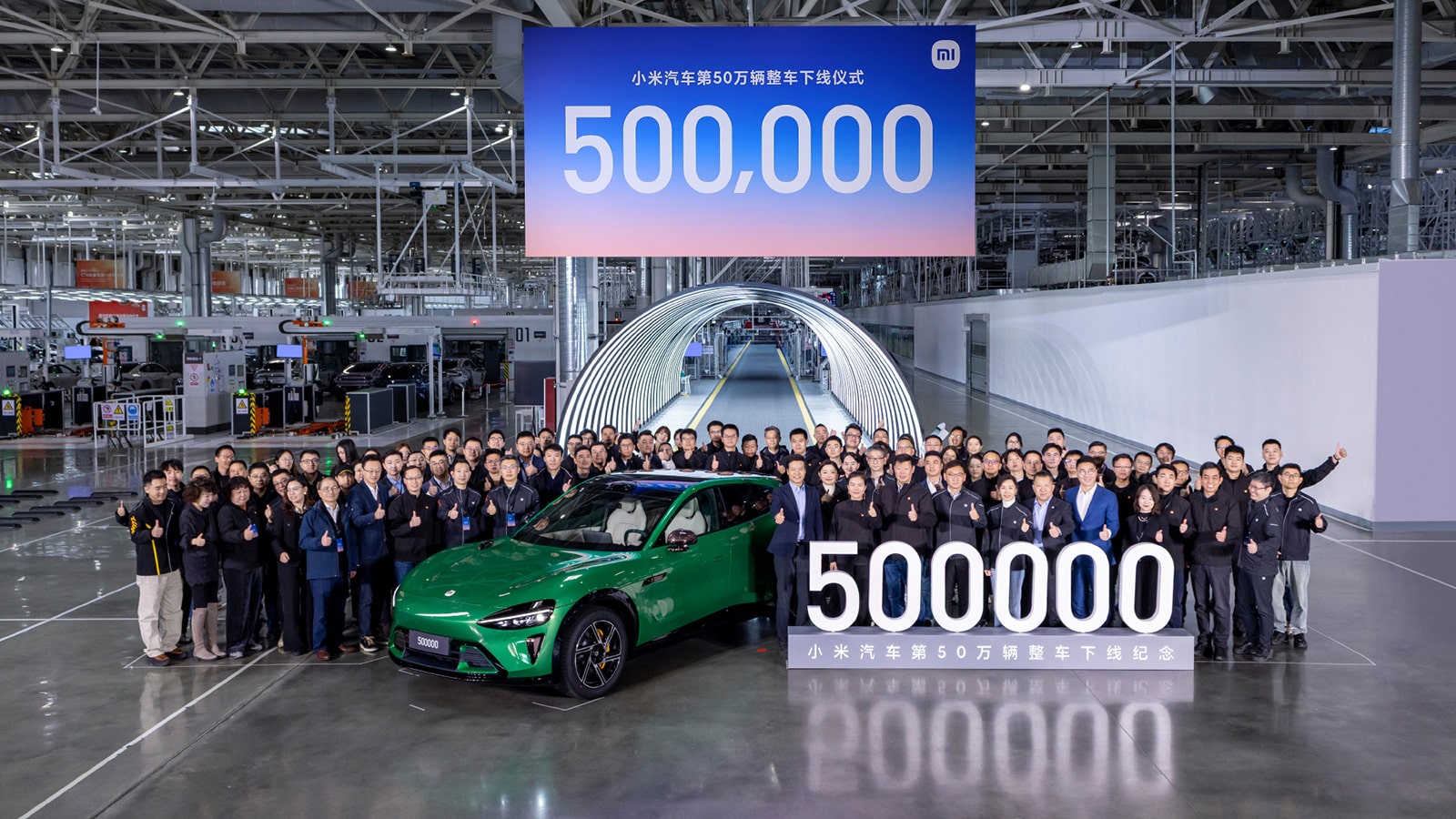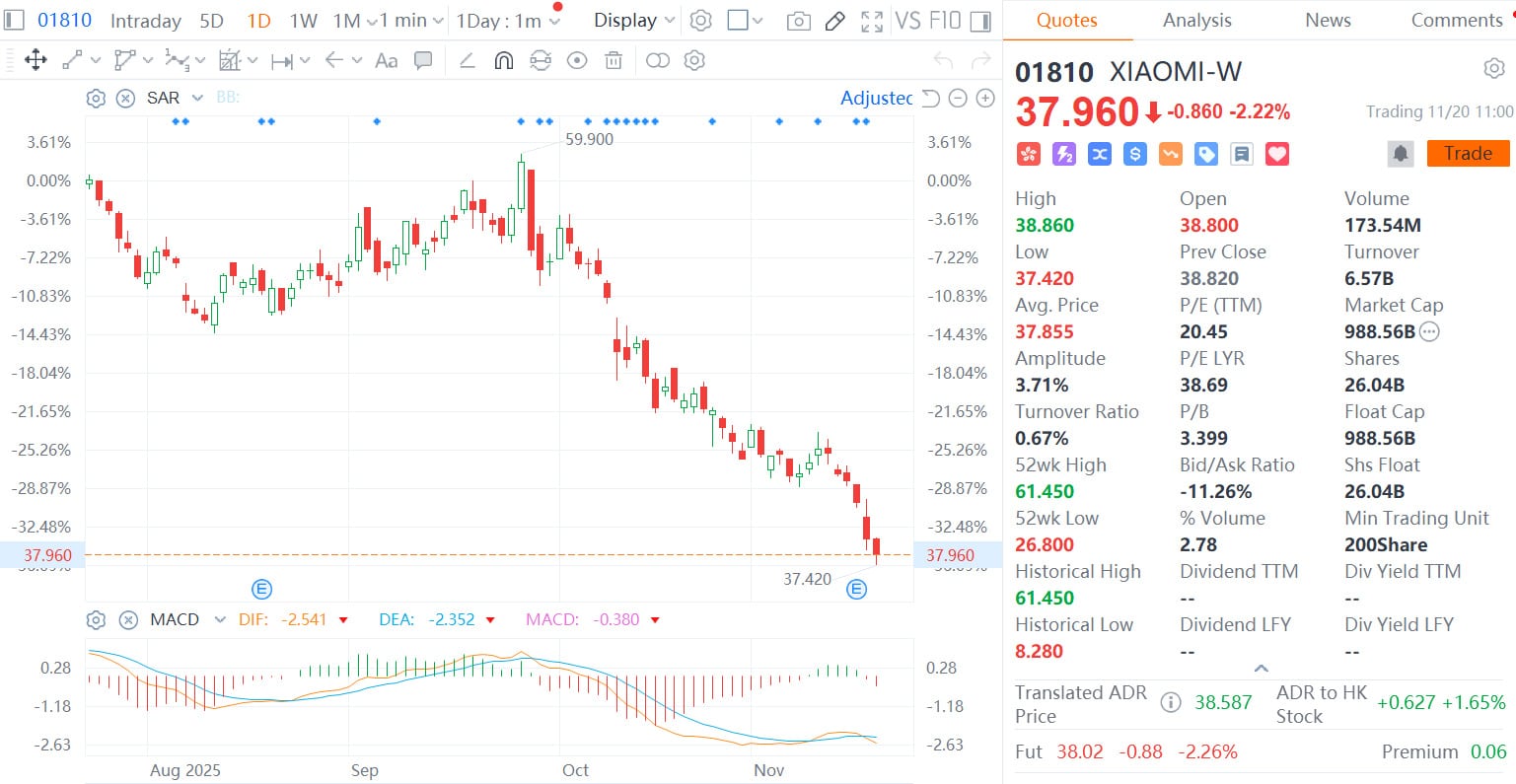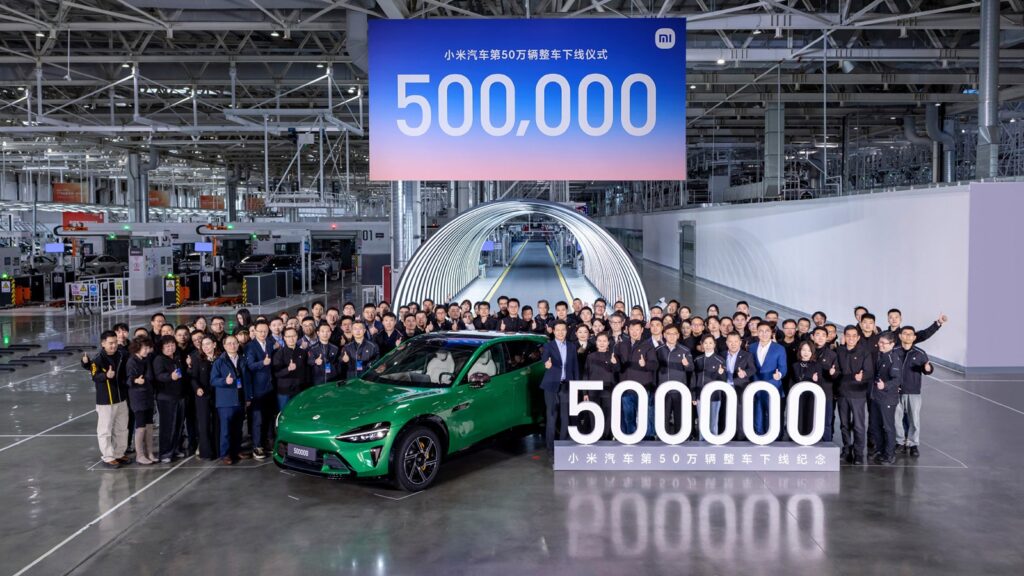- Xiaomi reached its 500,000th vehicle production milestone, marking a significant achievement for the smartphone giant’s EV business.
- Xiaomi EV is expected to reach its 2025 delivery target of 350,000 units later this week, with full-year deliveries slated to exceed 400,000 units.

Xiaomi (HKG: 1810, OTCMKTS: XIACY) has reached the 500,000th vehicle production milestone and now expects to deliver over 400,000 units this year.
Xiaomi EV announced the milestone on Weibo today, calling it a new starting point.
This makes Xiaomi one of the fastest companies in China’s automotive market to reach 500,000 vehicles produced, achieving this milestone just one year and seven months after its first vehicle rolled off the production line.
Its 500,000th vehicle delivery is expected within days, factoring in logistics.
“We will continue our efforts in the future and thank all owners for their support,” Xiaomi EV wrote on Weibo.
Lei Jun, founder, chairman, and CEO of Xiaomi, stated at a celebration ceremony that the company expects to deliver over 400,000 cars in 2025.
As a latecomer to China’s EV sector, Xiaomi has seen remarkable growth over the past two years, delivering 135,000 vehicles in 2024 — the year its first model was launched.
On November 18, Xiaomi management said during its third-quarter earnings call that Xiaomi EV is expected to complete its 2025 annual delivery target of 350,000 units this week.
From January to October, Xiaomi EV had already delivered 315,376 vehicles, nearing its annual target, according to data compiled by CnEVPost.
Xiaomi’s innovative businesses, including EVs and AI, achieved net income of RMB 700 million ($98.4 million) in the third quarter, marking its first quarterly profitability.
This can be viewed as Xiaomi EV’s first quarterly profit, as the EV business contributed nearly 98 percent of Xiaomi’s innovative business revenue.
In the third quarter, Xiaomi’s innovative business revenue reached a record high of RMB 29 billion. EV served as the primary revenue source, contributing RMB 28.3 billion, or 97.6 percent. Other business revenue totaled RMB 700 million.
Xiaomi delivered a record 108,796 vehicles in the third quarter, marking a 173.43 percent year-on-year increase and a 32.59 percent rise from the second quarter, according to data compiled by CnEVPost.
However, it’s worth noting that Xiaomi’s Hong Kong-listed shares have shown weak performance amid pressure on its smartphone business and the Chinese EV industry approaching a challenging first-quarter 2026.
As of press time, Xiaomi shares were down 2.22 percent to HK$37.96 per share in early Hong Kong trading today, hitting a new low since April 10 and extending its two-month decline to 33 percent.

Xiaomi formally announced its entry into the automotive sector on March 30, 2021, and unveiled its first model, the SU7 electric sedan, on December 28, 2023 — a direct competitor to Tesla‘s (NASDAQ: TSLA) Model 3.
The SU7 was officially launched on March 28, 2024, offering three variants — Standard, Pro, and Max — with starting prices of RMB 215,900, RMB 245,900, and RMB 299,900 respectively.
Deliveries for the Standard and Max SU7 models commenced in April last year, while SU7 Pro deliveries began in May 2024.
On February 27 this year, Xiaomi officially launched the SU7 Ultra, a high-performance electric sedan based on the standard SU7, starting at RMB 529,900.
On June 26, Xiaomi launched the YU7 SUV (sport utility vehicle), a Tesla Model Y competitor, with three variants starting at RMB 253,500 ($35,380), RMB 279,900, and RMB 329,900.
Last month, Xiaomi EV deliveries hit a record 48,654 units, marking the second consecutive month exceeding 40,000 units and approaching the 50,000-unit mark.
This could be seen as Xiaomi EV achieving its first quarterly profit, as the EV business contributed 97.6 percent of Xiaomi’s innovative business revenue.
($1 = RMB 7.1169)


